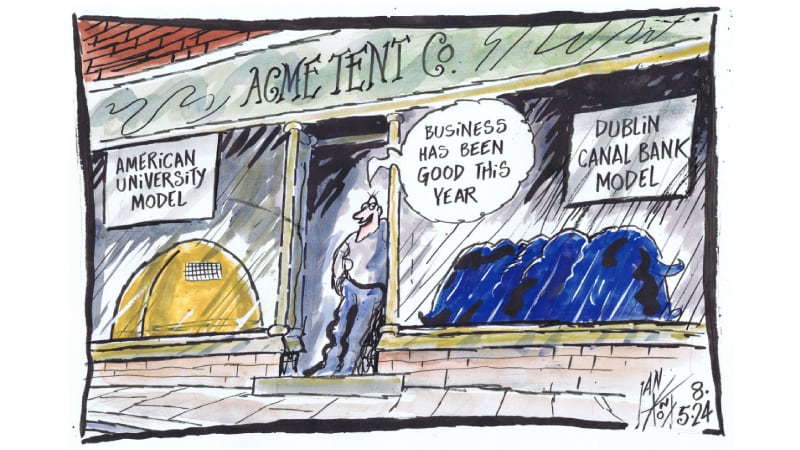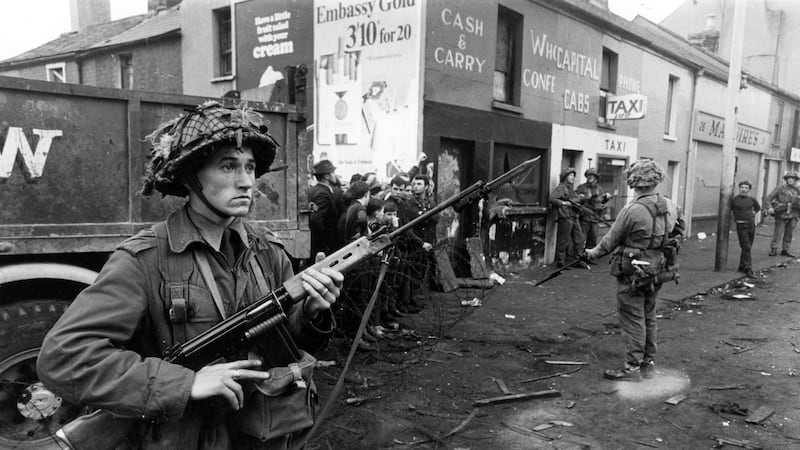On seeing the headline of Tom Collins’s opinion piece – ‘We need to move on and leave history to historians’ (March 9) – I was minded of a talk I attended by Sara Rowbotham, a social worker working in Rochdale at a time when ‘historical abuse’ of children was taking place. She pointed out that by using the term ‘historical’, we diminish the importance, diminish the impact and diminish those abused. The ‘historical’ prefix tells us that as a society, we no longer have to trouble ourselves about such events. Sara Rowbotham strove to counter this narrative by speaking truth to power in the most specific of ways, recounting to officials in detail exactly what was done to these girls.
My brother, Paul Whitters, was 15 years old when he was shot in the temple by a police officer who fired a bullet the weight of a cricket ball travelling at catastrophic speed from well below the permitted range.
Paul was given no first aid, dragged by the leg and tossed into the back of their Land Rover. He struggled on a life support machine for 10 days while my parents struggled with the decision to turn it off.
My brother was throwing stones at the window of a closed bakery in Derry – it was not a riot situation. Eyewitnesses were not interviewed and years later, officers involved refuse to be interviewed or ‘don’t remember’. Last year, the NIO closed a file relating to Paul, in order to protect individuals, until 2059. I will be 76.
In recounting these facts, I don’t mean to “nourish” my “sense of victimhood” as Tom suggests. Instead, I mean to counter the narrative that Paul’s killing should be left to historians.
I am curious to know how a historian will help my family deal with the impact of trauma?
How a historian might have helped my parents rebuild their lives after such a senseless loss?
How might a historian explain to my young children who the boy in the family picture is?
And finally, if Paul’s death should actually be consigned to history, why are the contemporary sources not available for historians to access?
EMMA WHITTERS
Glasgow, Scotland
Covid-19 will soon take second place in survival stakes
This Covid-19 virus is about to see drastic changes to everyone’s finances as we drag on a bit.
The horror of not being able to pay for essentials like rent and utilities will bring everything into sharp focus very soon and the virus will take second place in the survival stakes.
Mortgages and banks are about to see some accommodation with payments delayed for a time, we are told, but every cent owed will have to be paid back as soon as the panic is over.
We’ll see how this goes but don’t hold out any great hope of compromise from the banks.
Private landlords, those who rely on rent for their only income, will definitely not fare well. Already the powers that be are “appealing” to the good nature of landlords to be flexible in dealing with tenants.
All well and good on paper but we can rest assured the government does not care if landlords do not ever get paid.
There will certainly be no official government help when the pressure is on and many tenants see an
opportunity not to pay anyway, regardless of an ability to meet their commitments.
These next official steps, no doubt forthcoming, will ensure the business will suffer even more and will see an exodus of decent landlords getting away from the headaches of owning a property or two.
ROBERT SULLIVAN
Bantry, Co Cork
Benign stance
Numerous challenging letters have been recently published concerning the RUC and Trevor Ringland’s benign stance on its position in a former unionist dominated six counties.
In 2004 Chris Ryder had a book published The Fateful Split – Catholics and the Royal Ulster Constabulary.
He describes in forensic detail the formation and demise of an organisation that was totally unsuited to policing a mixed community.
For the first 22 years (1921-1943) it was under the baleful influence of a bigoted Richard Dawson Bates, Minister of Home Affairs.
Mr Ryder cogently details the discrimination, deceit and evasion in an organisation with an ingrained and institutional dislike of the Catholic minority.
I recommend Mr Ringland read and digest the facts in this scholarly book before he composes any more woolly letters.
BRIAN WILSON
Craigavon, Co Armagh
Good news in times of tribulation
Communion with God incarnate, Our Lord Jesus Christ, is readily available to those who pray and invoke His name in an attitude of adoration and faith.
According to the Catechism of the Catholic Church (CCC 2666), “the one name that contains everything is the one that the Son of God received in his incarnation – Jesus. The divine name may not be spoken by human lips, but by assuming our humanity the Word of God hands it over to us and we can invoke it: “Jesus, saves”. The name ‘Jesus’ contains all – God and man and the whole economy of creation and salvation. To pray ‘Jesus’ is to invoke Him and to call Him within us. His name is the only one that contains the presence it signifies. Jesus is the Risen One, and whoever invokes the name of Jesus is welcoming the Son of God who loved him and who gave himself up for him.”
Good News in times of tribulation.
JP McPHILLIPS
Derry City
Fr McVeigh is Sinn Féin cheerleading
I am sure I was not the only person astonished to read that Fr Joe McVeigh (March 5th) was such a cheerleader for Sinn Féin, a party that has such contempt for Christian values.
He expressed his outrage against those two failed entities Fianna Fáil and Fianna Gael for their snub to Mary Lou McDonald and Michelle O’Neill after the recent election.
How does he justify this allegiance to a party that rejects the Christian concept that marriage is between a man and a woman, and worse still, a party that campaigns for the right to abortion. I wonder if many of his parishioners share his views?
J DIAMOND
Coleraine, Co Derry







